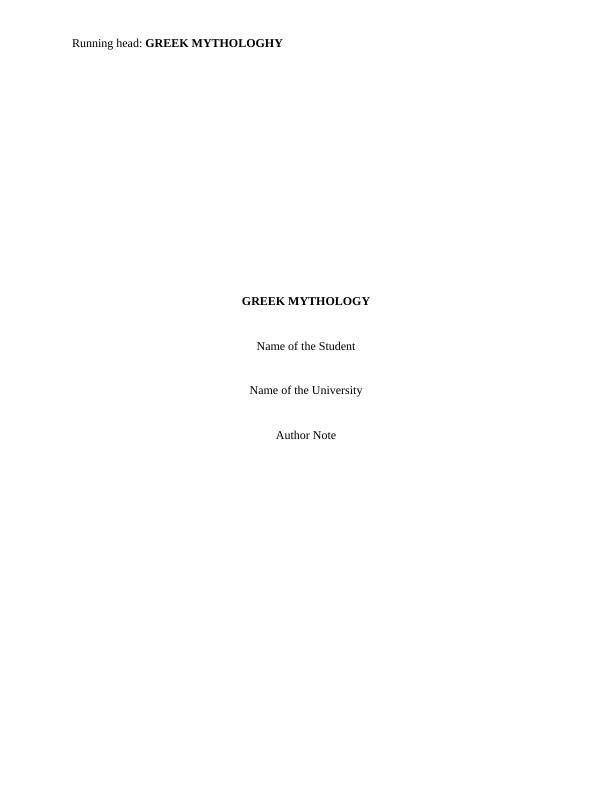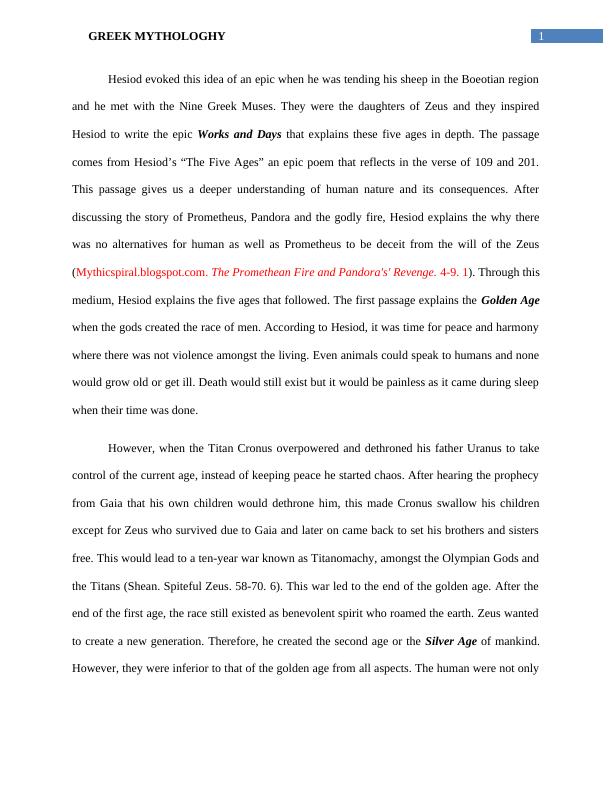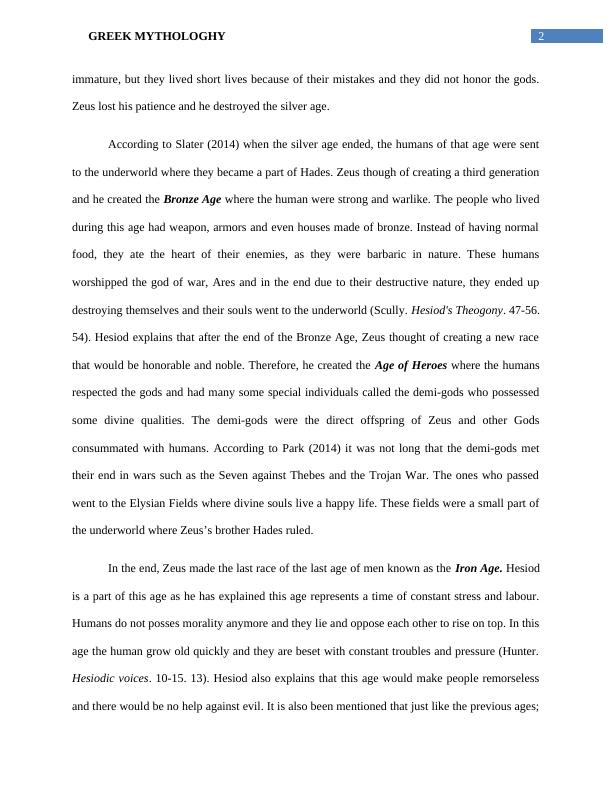Greek Mythology: The Five Ages of Humankind's Progress
This example is my own analysis of a section of Hesiod’s Theogony, specifically part of the Prometheus’ myth (Hesiod. Theogony. 317-352).
8 Pages2039 Words102 Views
Added on 2023-06-03
About This Document
This article explores the five ages of humankind's progress in Greek mythology through Hesiod's epic poem Works and Days. It discusses the Golden Age, Silver Age, Bronze Age, Age of Heroes, and Iron Age, and how each age reflects human nature and its consequences. The article also touches on the views of Anaxagoras and the representation of astronomical objects in Greek mythology.
Greek Mythology: The Five Ages of Humankind's Progress
This example is my own analysis of a section of Hesiod’s Theogony, specifically part of the Prometheus’ myth (Hesiod. Theogony. 317-352).
Added on 2023-06-03
ShareRelated Documents
End of preview
Want to access all the pages? Upload your documents or become a member.
Assignment on History - Roman and Greek Mythology
|4
|499
|17



